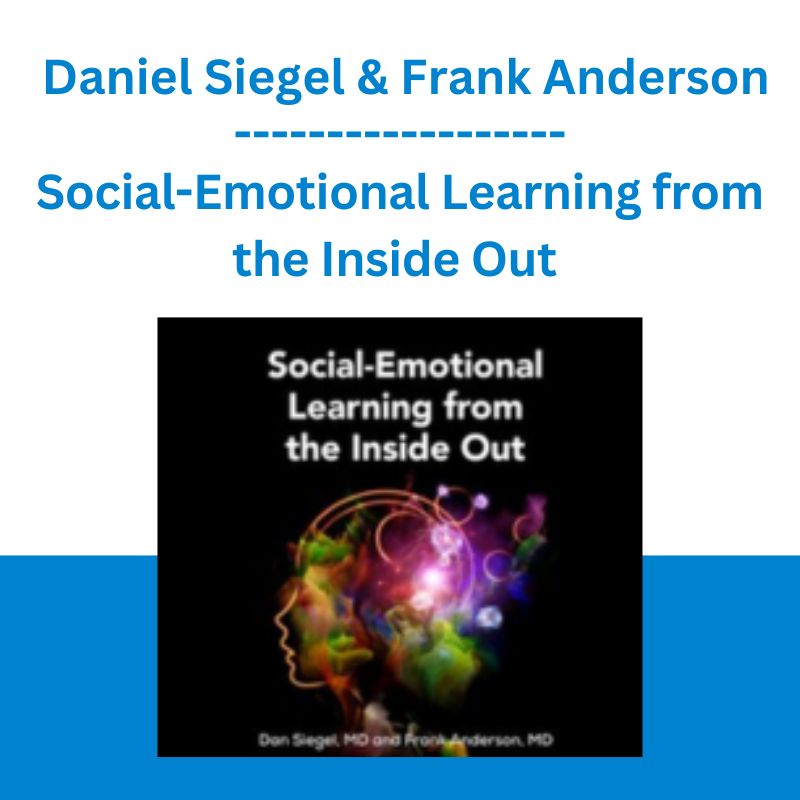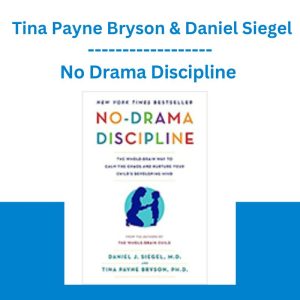*** Proof of Product ***
Exploring the Essential Features of “Social-Emotional Learning from the Inside Out – Daniel Siegel & Frank Anderson”
You don’t want to miss this closing keynote! Best-selling author, child psychiatrist and award-winning educator, Daniel Siegel is joined by Frank Anderson, author, psychiatrist, therapist, and IFS lead trainer for a conversation on how to equip children with tools to deal with overwhelming challenges they face- with skills founded in “mindsight” and IFS parts work.
Social and emotional learning emerge from the cultivation of mindsight and greater access to self-energy–our ability to sense the mind, inside and out, and move that mental life toward integration as we honor differences and promote compassionate linkages and connections.
Take home strategies to teach kids how to differentiate and appreciate the various aspects of their states of mind, and learn how to integrate, adapt, and develop resilience when faced with overwhelming challenges in their life.
Speaker
Daniel J. Siegel, MD
Mindsight Institute
Daniel J. Siegel, MD, is a graduate of Harvard Medical School and completed his postgraduate medical education at UCLA with training in pediatrics and child, adolescent, and adult psychiatry. He is currently a clinical professor of psychiatry at the UCLA School of Medicine, founding co-director of UCLA’s Mindful Awareness Research Center, founding co-investigator at the UCLA Center for Culture, Brain and Development, and executive director of the Mindsight Institute, an educational center devoted to promoting insight, compassion, and empathy in individuals, families, institutions, and communities.
Dr. Siegel’s psychotherapy practice spans thirty years, and he has published extensively for the professional audience. He serves as the Founding Editor for the Norton Professional Series on Interpersonal Neurobiology which includes over 70 textbooks. Dr. Siegel’s books include his five New York Times bestsellers: Aware: The Science and Practice of Presence; Brainstorm: The Power and Purpose of the Teenage Brain, Mind: A Journey to the Heart of Being Human, and two books with Tina Payne Bryson, Ph.D, The Whole-Brain Child and No-Drama Discipline. His other books include:The Power of Showing Up also with Tina Payne Bryson, Ph.D., The Developing Mind, The Pocket Guide to Interpersonal Neurobiology, Mindsight, The Mindful Brain, The Mindful Therapist, Parenting from the Inside Out (with Mary Hartzell, M.Ed.), and The Yes Brain (also with Tina Payne Bryson, Ph.D). He has been invited to lecture for the King of Thailand, Pope John Paul II, His Holiness the Dalai Lama, Google University, and TEDx.
Speaker Disclosures:
Financial: Dr. Daniel Siegel is the clinical professor at the UCLA School of Medicine, the medical director of Lifespan Learning Institute, the executive director of Center for Human Development and Mindsight Institute, and the founding editor of Norton Series on Interpersonal Neurobiology. He receives royalties as a published author. Dr. Daniel Siegel receives a speaking honorarium, recording royalties, and book royalties from PESI, Inc. He has no relevant financial relationships with ineligible organizations.
Non-financial: Dr. Daniel Siegel serves on the advisory board for Gloo and Convergence in Washington, D.C.
Frank Anderson, MD
Frank Anderson, MD, completed his residency and was a clinical instructor in psychiatry at Harvard Medical School. He is both a psychiatrist and psychotherapist. He specializes in the treatment of trauma and dissociation and is passionate about teaching brain-based psychotherapy and integrating current neuroscience knowledge with the IFS model of therapy.
Dr. Anderson is a lead trainer at the IFS Institute with Richard Schwartz and maintains a long affiliation with, and trains for, Bessel van der Kolk’s Trauma Center. He serves as an advisor to the International Association of Trauma Professionals (IATP) and was the former chair and director of the Foundation for Self-Leadership.
Dr. Anderson has lectured extensively on the Neurobiology of PTSD and Dissociation and wrote the chapter “Who’s Taking What” Connecting Neuroscience, Psychopharmacology and Internal Family Systems for Trauma in Internal Family Systems Therapy – New Dimensions. He co-authored a chapter on What IFS Brings to Trauma Treatment in Innovations and Elaborations in Internal Family Systems Therapy, and recently co-authored Internal Family Systems Skills Training Manual.
His most recent book, entitled Transcending Trauma: Healing Complex PTSD with Internal Family Systems was released on May 19, 2021.
His memoir, To Be Loved, is set to be released on May 7, 2024.
Speaker Disclosures:
Financial: Dr. Frank Anderson maintains a private practice. He is the Executive Director of the Foundation for Self Leadership and has employment relationships with The Trauma Center and The Center for Self Leadership. Dr. Anderson receives royalties as a published author. He receives a speaking honorarium, recording, and book royalties from PESI, Inc. He has no relevant financial relationships with ineligible organizations.
Non-financial: Dr. Frank Anderson is a member of the New England Society Studying Trauma and Dissociation and the International Society for the Study of Trauma and Dissociation.
Objectives
- Utilize a definition of the mind from the framework of Interpersonal Neurobiology to apply the notion of energy regulation to optimal mental functioning.
- Explain how the Internal Family Systems model of therapy helps children increase affect tolerance and self-regulatory capacities.
- Assess states of chaos and rigidity that reveal an impediment to the integration at the heart of well-being.
Outline
Integrating interpersonal neurobiology and IFS as it relates to social emotional learning
The concept of mindsight to understanding states of mind or parts of the self
Differences between preventive, extreme and wounded parts, from Self Energy
What is the mind and how can a definition of mind be harnessed to define and cultivate mental health
How the “parts” of who we are or “self-states” can be understood as protective mechanisms
The notion of integration to honor the differences among states of mind
Help a client heal and move toward a flourishing inner and relational life?
Target Audience
- Psychologists
- Social Workers
- Addiction Counselors
- Counselors
- Marriage & Family Therapists
- Speech Language Pathologists
- Educators
- Occupational Therapists & Occupational Therapy Assistants and other Mental Health Professionals
Please see the full list of alternative group-buy courses available here: https://lunacourse.com/shop/










 Money Miracle - George Angell - Use Other Peoples Money To Make You Rich
Money Miracle - George Angell - Use Other Peoples Money To Make You Rich  Jesse Livermore Trading System - Joe Marwood
Jesse Livermore Trading System - Joe Marwood  Oliver Velez - Essential Strategy Of Trade For Life
Oliver Velez - Essential Strategy Of Trade For Life  Simpler Trading - Bruce Marshall - The Options Defense Course
Simpler Trading - Bruce Marshall - The Options Defense Course  Racing Workshop - Complete Online Package
Racing Workshop - Complete Online Package  Crypto Dan - The Crypto Investing Blueprint To Financial Freedom By 2025
Crypto Dan - The Crypto Investing Blueprint To Financial Freedom By 2025  SMB - Options Training
SMB - Options Training  Greg Loehr - Advanced Option Trading With Broken Wing Butterflies
Greg Loehr - Advanced Option Trading With Broken Wing Butterflies  Fred Haug - Virtual Wholesaling Simplified
Fred Haug - Virtual Wholesaling Simplified  No Drama Discipline - Tina Payne Bryson & Daniel Siegel
No Drama Discipline - Tina Payne Bryson & Daniel Siegel  Julie Stoian & Cathy Olson - Launch Gorgeous - Funnel Gorgeous Bundle
Julie Stoian & Cathy Olson - Launch Gorgeous - Funnel Gorgeous Bundle  The Daily Traders – Exclusive Trading Mentorship Group
The Daily Traders – Exclusive Trading Mentorship Group  Matan Feldman - The 13-Week Cash Flow Modeling - Wall Street Prep
Matan Feldman - The 13-Week Cash Flow Modeling - Wall Street Prep